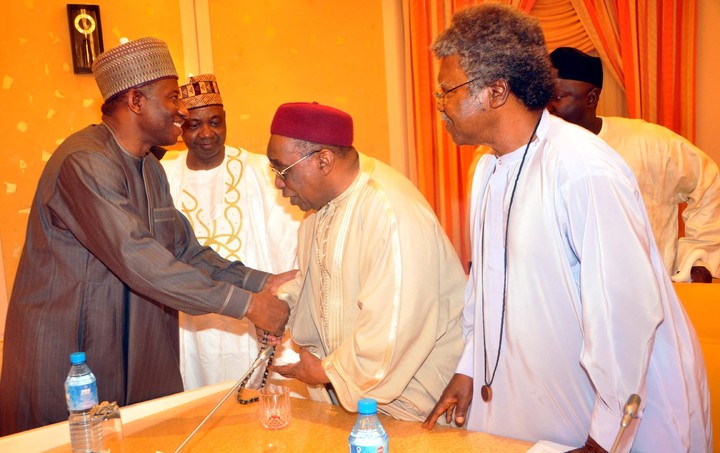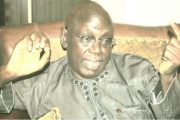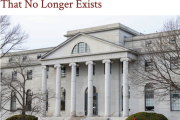
Paul Unongo, NEF’s new helmsman
Radicals, critics and distant observers still stuck in rationalist model of meaning making would be lost about why anyone would attach any importance to the change of baton at the Northern Elders Forum where Dr Paul Unongo has just succeeded Alhaji Yusuf Maitama Sule, the elder statesman and orator from Kano State who died last week. Students of power would, however, be interested in the change of baton because power has been the worst victim of the diffusion wrought by the post modern onslaught. In the post modernist diffusion, power has been expanded from an exclusively authoritative process to the spheres of structural, institutional and productive dimensions of it.
Productive dimension of power or power which flows from the constitutive force of discourse means that we must pay attention to such platforms as the Northern Elders Forum – what they say, when they say it and what the meaning of what they say could be. All of that makes change of baton there important, with particular reference to what only those who bury their heads in the sands in the way of the ostrich would not consider disturbing about northern Nigeria.
Alhaji Tijani Tumsah, the Vice-Chairman of the Presidential Committee on the North East Initiative, (PCNI) described the situation in the region as dire and alarming last week. In the same week that he was talking, The Economist Intelligence Unit talked about famine as a reality in the region. The Northwest is providing Nigeria the second person to assume national power in a decade but only for each of them to fall sick as soon as they enter office. It is also a sub-region of poverty. The North central has, in addition to poverty, been a battleground. It has been so for decades.
The question of how to deal with that has even fallen into a contest of self understanding. While the Jerry Gana led Middle Belt Forum is virtually talking of delinking from the larger north in cultural terms, Professor Yima Sen, also an activist of the Middle Belt Forum has argued for the path of continuing coalescence of identities in the north. For him, there is a cultural milieu that is clearly northern and which just has to be managed by en facing contradictions and conflicts. He was posing what could be called a progressive framing of the challenge to what he sees as “acrimoniously ethnic or religious” politics of the Middle Belt Forum although he did not name the MBF.

General Gowon
Meanwhile, two weeks ago, General Yakubu Gowon was in Sokoto. He went to solidarise with former President Shehu Shagari at his birthday. General Gowon went with Bishop Mathew Hassan Kukah. As the Commander-in-Chief of the Nigerian Armed Forces during the Nigerian Civil War, Gowon’s moves in whichever direction are read as meaningful actions. The reason for this is not farfetched. Agitators for restructuring of the Nigerian State talk endlessly about how artificial the state is because Lord Lugard consulted nobody before amalgamating the north and the south. It probably does not occur to these agitators that the Nigeria Lugard created has since been contested and renegotiated. That was what the Biafrans contested and unscrambled. The Nigeria that emerged from the containment of the Biafran challenge shares elements of the Lugardian impulse but is completely different from it. What exists now is what Nigerians constructed when they compelled Biafrans to accept the Nigerian State. The leader who presided over such a historical process would necessarily carry the mystique that comes with doing so. And Gowon carries it. Whatever he says or does are seen as meaningful actions.
His friend, the late Ali Mazrui, has compared him to US President Abraham Lincoln who played similar role in the case of the American State. Professor Isawa Elaigwu, his biographer, leaves no one in doubt that that is Gowon’s status. And his anger today is that, instead of Nigerians to take it that all have made mistakes and it is time to learn from it, they are talking of the mistake of 1914. Of course, he has no patience with any such notion of the mistake of 1914 because he argues that there will be more mistakes today if one were to divide Nigeria along ethnic lines. So, he laughs when people waste their time “about the mistake of 1914 instead of taking cognisance of the past, critically learn from it, contribute constructively to the present and lay the foundations for tomorrow for our children”.

Prof Yima Sen: poses his own version of Middle Belt self-understanding
But all three instances send different messages from the Middle Belt. Although General Gowon is not a politician in that traditional sense and he carries on more at the national level, he cannot detach himself neatly from the politics of both the north and the Middle Belt. Then the Jerry Gana and Yima Sen positions! There is no knowing who leads the Middle Belt and which voice is authentic. But if the belt appears unable to hold the middle, how is its self-perception as the region holding the country together valid?
Like the North central, the larger north itself has been sick, relative to other parts of the country. It is culturally fragmented, politically unclear what to do with power which it held for quite a long time. It holds the record in de-industrialisation and reels in absolute poverty. But it is the most hostile region to any suggestions that the generation that followed the Sardauna regime mismanaged diversity. The Emir of Kano just barely escaped being sanctioned because he suggested it was about time to innovate. If the Emir could be sanctioned, who could they not deal with?
In this context, it makes sense to take note of this change of baton at the NEF. One reason for that is that the Nigerian State has so belittled itself in the past three decades that any rag tag group can throw mud at it and it cannot do anything about it. In that context, platforms of civil society such as the Northern Elders Forum cannot be dismissed because some of them can solve problems which the disheveled state lacks the moral authority to wade in and solve. So, who becomes the leader in such platforms becomes important.
Two, the scenario in the north as painted above makes this transition even more symbolic because it signals a deliberate attempt at reconciliation or an invitation to brotherhood. This is so because any office can be recreated. Some people go to certain office and transform it. In any case, as much as protocol permitted, Maitama Sule did speak truth to power when the forum met President Buhari after his election in 2015. Dr Paul Unongo, an experimental psychologist can take it farther, particularly if he starts from what Kayode Are, a onetime National Security Adviser, once said. Are gave a speech in which he said that “sometimes, the changes and refinements which can make the Nigerian union more viable are so simple and obvious but the powerful block it”. In the same speech, (see The Nation, June 7th, 2010), he postulated that “more happen in the realm of nuances and behind the scene intrigues than through formal and legal structures”. No student of politics would disagree with him on both points.

Alhaji Sani Zangon Daura, the UNILAG educated, but Katsina born politician and now Unongo’s deputy @ NEF

Prof Jerry Gana
In other words, the new NEF leader can choose to transcend the Nigerian tradition of reducing everything to angry rhetoric in the newspapers from which nothing good can come out. Because a calamity has befallen this house and leadership rather than power is the missing link. It is not power but leadership that would unite the north and, by implication, Nigeria because the north has been home to all. And remains so! It is not power but leadership that will naturalise the truism that finding new oil wells all over the country would still mean nothing without a transformative development strategy. It is not power but leadership that would question the current intoxication with an Apartheid variant of restructuring instead of the principle of disciplined, centralised planning by which a basically agrarian society such as Nigeria can leapfrog into modernity. In the present ecstasy, the people can be made to accept something that is ‘objectively’ against their future. It is the type of moment that defines a leadership. If Mandela did not step in, South Africa would have, in all likelihood, missed it in 1994 because everyone was warming up to go for war. Instead, he used his moral authority to ask his people to unclench the fist.
Whether Paul Unongo is still capable or too old to re-imagine the NEF is what observers would be watching out for but the little message in his election is not lost. It can be repeated again and again at different points as we move closer to 2019. What is most urgent is ending this cycle of unproductive violence that keeps advertising the region as a case study in backwardness, even by Nigerian standard. Whether it is corruption fighting back or a demonstration of endemic catastrophe, the regularity of violent conflicts in the north shows a society which has lost it as far as conflict management is concerned. So, no excuses! Why are people not killing each other like that in Lagos, for example? Meanwhile, Lagos is much, much more multicultural and complex. Haba!



























